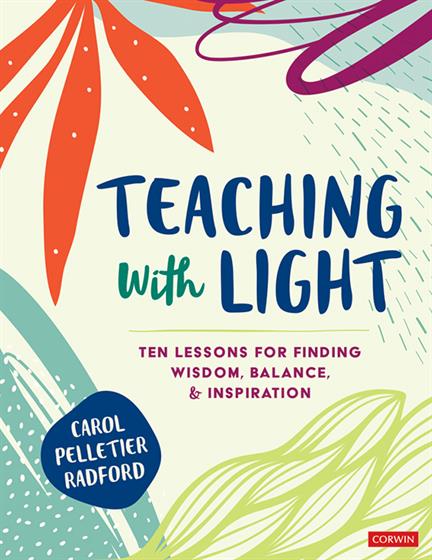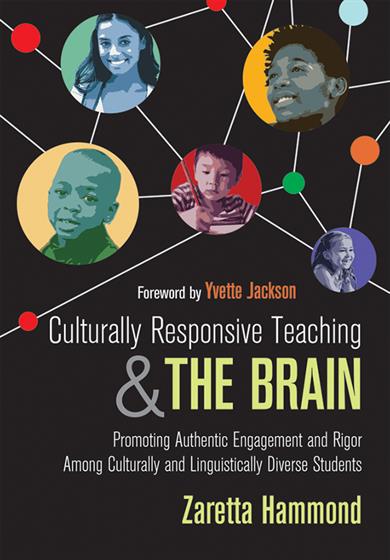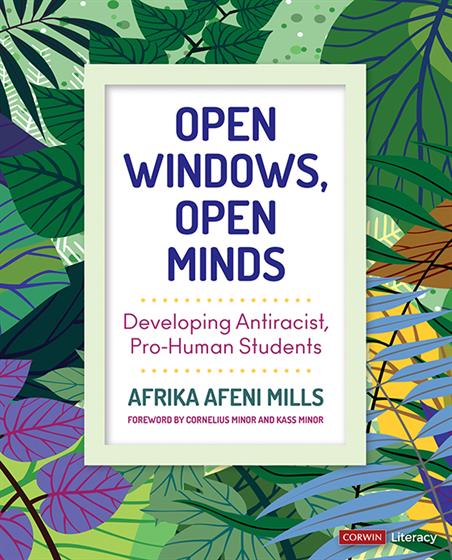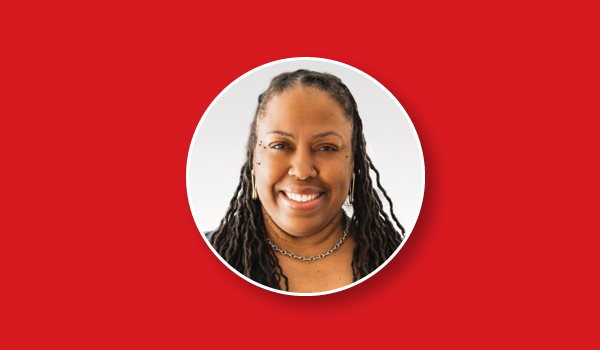
Be a Ripple
Guest(s): Afrika Afeni Mills and Jenna Chandler-Ward
Date: 10/09/2024
Run time: 41:04
Season 3, Episode 5
Join host Carol Pelletier Radford and her inspiring guests as they share pivotal moments, successful classroom strategies, and tips to stay healthy. Each episode of Season 3 is based on the 10 lessons from Carol's book, Teaching With Light (Corwin, 2021).
In Episode 5, hear from Afrika Afeni Mills & Jenna Chandler- Ward in "Be a Ripple" as they share their experiences, practical advice, and ways to stay inspired!
Afrika is author of Open Windows, Open Minds (Corwin, 2022). She also did a TEDTalk called "4 ways to have healthy conversations about race" in 2023.
Jenna is the Co-Author of the book, Learning and Teaching While White (W. W. Norton & Company, 2022) and hosts a podcast called Teaching While White.
Bonus Track: Carol’s Be a Ripple from Teaching With Light
Bonus YouTube: Be a Ripple hand mudra
Listen, review and subscribe on: Apple, Spotify, YouTube,
Episode Audio
[00:00:00.00] [MUSIC PLAYING]
[00:00:03.10] INSTRUCTOR: Welcome to Corwin's Teacher to Teacher podcast
with host Carol Pelletier Radford. Carol is an experienced classroom teacher
and university educator, founder of mentoringinaction.com, and author of four
bestselling professional books for teachers. She believes the best form of
professional learning happens when teachers engage in authentic conversations
and share their wisdom.
[00:00:23.99] In every episode, Carol and her guests share stories about
pivotal moments in their careers, successful classroom strategies, and personal
actions they take to minimize stress and stay healthy. The Teacher to Teacher
podcast is a place to engage in authentic conversation and reflection with
experienced educators. We hope these conversations will energize you, keep you
inspired, and remind you why you chose to become a teacher.
[00:00:49.11] CAROL PELLETIER RADFORD: Welcome to season three of the
Teacher to Teacher podcast. I am your host, Carol Pelletier Radford. And I am
happy to be part of a conversation with two experienced educators today. The
theme for season three is based on the book I wrote titled Teaching With Light,
10 Lessons for Finding Wisdom, Balance and Inspiration.
[00:01:13.86] Each of the 10 episodes for this season mirrors the 10 lessons
in the book. And today's episode is titled Be a Ripple. And let's begin by
having our guests, Afrika with a K and Jenna introduce themselves. I'm so happy
that the two of you could be on the episode today. And I think Be a Ripple is
perfect for the work that you're both doing.
[00:01:43.37] So, Jenna, let's start with you. And share how you got into
teaching and what you're doing now. And it's going to influence our
conversation. So welcome, Jenna.
[00:01:55.54] JENNA CHANDLER-WARD: Thank you for having me. It's a pleasure
to be.
[00:01:57.78] CAROL PELLETIER RADFORD: Oh, you've very welcome.
[00:02:00.69] JENNA CHANDLER-WARD: I got into teaching. I was living in Los
Angeles and seeing a lot of social woes of what's going on in LA. I was
actually working in a homeless shelter and started to think about how I could
contribute more. And I always loved kids, and in some ways it was very naive.
But I thought, I'll just go be a teacher. That's what I'll do.
[00:02:23.77] CAROL PELLETIER RADFORD: So many people have that story. I
know.
[00:02:28.17] JENNA CHANDLER-WARD: And so went to a program in LA and got
certified, elementary certification. So that's how I got into teaching.
[00:02:36.58] CAROL PELLETIER RADFORD: And what are you doing now then? From
that beginning journey to what you're-- describe your consulting firm and how
you're supporting teachers right now?
[00:02:47.93] JENNA CHANDLER-WARD: Yeah. So through a whole process, I
taught kindergarten through graduate school in about 20 years-- over a period
of about 20 years, and started to think about how identity impacts teaching and
learning and how what I chose to teach and how what I taught was received, and
what and how I was teaching. And so I really focused on that and started a
conference called the Multicultural Teaching Institute to focus on my identity.
[00:03:21.22] And through that work became really focused on race because
when we talked about race in education, we were only ever talking about Black
and brown families, colleagues, students. And I wondered why we were never
naming whiteness when we know about 84% of teachers in this country are white.
And we know that that doesn't match the population.
[00:03:43.04] So through that, started a blog just to see what other people
were doing around the country. I wanted to know what were best practices, how
do we talk about whiteness? Do we talk about whiteness? And through that I
thought it would be really cool because there's so much emotion when people
talk about race, I think I'll start a podcast.
[00:04:03.17] So I started a podcast Teaching While White, and once that
launched, then I left my middle school teaching job and started consulting full
time. I'm now working as an instructional coach in the Providence public
schools and also continuing to consult around the country.
[00:04:23.87] CAROL PELLETIER RADFORD: Thank you. We're going to hear more
about how you're rippling out this message Teaching While White. Thank you.
Afrika.
[00:04:31.14] AFRIKA AFENI MILLS: Hey.
[00:04:31.39] CAROL PELLETIER RADFORD: How are you? I think we know each
other a little bit.
[00:04:35.25] AFRIKA AFENI MILLS: We do. We do.
[00:04:36.37] CAROL PELLETIER RADFORD: I know. I didn't know we knew each
other. So introduce yourself and your teaching background and what you're doing
right now.
[00:04:46.58] AFRIKA AFENI MILLS: Yeah, so Afrika Afeni Mills. I started
thinking about becoming a teacher. I think in a lot of ways, I'm someone who's
always loved to write ever since I was a little kid. And at first I thought I
was going to be-- like I was going to work for essence magazine. And I was
going to be write these fiction novels and all of these things. But as I try--
I was actually in a graduate creative writing program at Boston University and
realized that I really-- when I thought about what was formative for me and
powerful for me in my own life as a child was particularly my fourth and fifth
grade classroom teachers.
[00:05:21.11] And so then I transferred over to Boston College and ended up
becoming a certified elementary teacher and started out teaching like fourth
and fifth grade. And then spent a number of years in teacher development,
whether it be as a new teacher developer, as a literacy coach, as an
administrator in some ways. And so now fast forward to what I'm doing now, I am
the founder and CEO of Continental Drift LLC, which is my consulting company,
and I'm also an adjunct instructor at Boston College, which feels really full
circle for me.
[00:05:55.36] That way I got my degree from. But my son is at BC. He's a
rising senior at Boston--
[00:05:59.94] CAROL PELLETIER RADFORD: Oh my goodness. Three of my sons went
to Boston College as well. Yes. Two are teachers, and the third works in
humanitarian efforts. And you and I were at BC at the same time because there
was the certification officer.
[00:06:18.97] AFRIKA AFENI MILLS: The one who--
[00:06:21.13] CAROL PELLETIER RADFORD: And that's probably why I remembered
Africa with a K. And you were there getting your beginning launch into
teaching. And look at the ripple that your life, or both of your lives have
taken since you made that decision to be a teacher.
[00:06:38.99] So let's get to the episode. So the title of this episode is
Be a Ripple. And I'm really excited that the two of you are the guests for this
show because I think your messages-- and I must confess do know each other. So
I want to pull that into the podcast conversation to our listeners, because
usually this is like the dating game. We have two guests, and they don't know
each other. And we and we see where people connect because the message across
teaching is we're pretty much a lot of the time have the same challenges and
issues.
[00:07:17.18] So for today though would be a ripple. I chose you on purpose
that you knew each other because I think the message is so strong. And I want
our listeners to hear how you both collaborated because that can be an
underscore message for our listeners to collaborate with other teachers around
the discussion of culture and diversity and race.
[00:07:42.23] So why don't we start with how you know each other and have
full disclosure in this episode that we're not going to pretend they don't know
each other.
[00:07:52.22] AFRIKA AFENI MILLS: No, no, no, no.
[00:07:52.98] CAROL PELLETIER RADFORD: Afrika?
[00:07:53.81] AFRIKA AFENI MILLS: Yes.
[00:07:54.28] CAROL PELLETIER RADFORD: How do you know Jenna? How did this
relationship-- how did you connect?
[00:07:58.74] AFRIKA AFENI MILLS: Yeah, so I started out massively
fangirling Jenna because I was-- yeah, absolutely. So I was at a point in my
career as an educator where I had been exploring and pursuing professional
learning opportunities around culturally responsive teaching and learning.
[00:08:17.91] And I was like, yes, this is, this is important. It's
important for people to understand what it really is, because I think there was
and now is still a misunderstanding of what it means to be culturally
responsive. And so a lot of times I'm like, OK, it seems like it's about like
trying to make the world better for Black and brown kids. And I was like,
that's no, that's some of it, but not all of it.
[00:08:40.28] There seems to be something missing. And I'm just like OK,
we're talking about the Black and brown babies. We need to get into the nuance
of those conversations. And I'm like, well, what about the white babies? I'm
like, what is it that they're engaging with when it comes to this conversation?
[00:08:53.48] And so I started like, I'm a massive-- like when I talk about
deep dive for resources, that's like my reputation and my family. Everybody who
knows me. The resource queen, right? So I started doing searches online and
trying to find out like resources around like anti-racist teaching.
[00:09:08.87] And I found the Teaching While White podcast and blog. And I
was like, what is this?
[00:09:14.57] CAROL PELLETIER RADFORD: Ooh, who is doing this?
[00:09:17.33] AFRIKA AFENI MILLS: What is this? It's like, you got to look
it up. And I'm just like, how do I contact these folks? And it's like got to
contact info@teachingwhilewhite. And so I was like, hello, I was trying to get
in contact with you, but I really would love to connect. And Jenna wrote me
back.
[00:09:32.39] CAROL PELLETIER RADFORD: Jenna, what was your reaction when
you heard from Afrika? Thank you, Afrika. What was this? Like who is this? No.
[00:09:42.05] JENNA CHANDLER-WARD: Well, I could tell by by her email that
she knew what she was talking about. And a lot of the emails we get are from
teachers who are very new to the subject. But she dove right in and had all
sorts of questions. And so we were having actually a launch party of our
organization. And I said, why don't you come?
[00:10:03.18] CAROL PELLETIER RADFORD: Ooh. I love it.
[00:10:05.43] JENNA CHANDLER-WARD: And because we were both in the Boston
area. And so she did. And after it was over, I went and found her and started
talking to her. And I think you named it Carol. We have to be in community, and
we have to have our people in this work. And when I met Afrika, it was one of
those-- I don't mean to sound corny-- but you feel a vibration when things are
like aligned.
[00:10:32.23] CAROL PELLETIER RADFORD: You get the goosebumps.
[00:10:35.11] JENNA CHANDLER-WARD: And so when I was talking to her after
this event, I just knew that we were going to stay in touch, and that we would
work together.
[00:10:43.72] CAROL PELLETIER RADFORD: And that's it. And there you are.
Thank you for sharing that. And I'm getting the goosebumps too because I'm
hoping our listeners are hearing the two of you. And this is the community, and
they're going to connect with you after this podcast. The resources will be
listed in the description.
[00:11:02.38] And your podcast will be featured and Afrika's Ted talk,
because this is a conversation. It's not one and done. It's not like one
podcast for 30 minutes. We met you two wonderful people. It's the beginning for
a lot of teachers who really don't know where to turn, and I'm just grateful.
[00:11:23.27] So let's get into stories. So that's how you know each other.
We're talking about being a ripple. But our connection to cultural
responsiveness and race comes from our hearts and our stories. So Afrika, so
what happened in your life that made you end up here and not in the classroom,
which is not a bad place to be, but you are driven to do something else? So
what happened? Tell me what happened. What's your story?
[00:11:57.57] AFRIKA AFENI MILLS: Yeah, so I will-- thinking about what it
felt like to be a brand new teacher and the ongoing support that's needed to
make sure that teachers have what they need, not just as far as like materials,
but like the ongoing community conversation, someone to be a thought partner to
walk alongside you. Just like in other professions, it seems like it's common
that that happens. But for some reason when it comes to teaching, it's not
emphasized as much, or at least in my experience. That wasn't what it was.
[00:12:26.17] So after being a classroom teacher for a bit and having the
opportunity to from being a classroom teacher become a literacy coach, oh my
gosh, I fell in love with teacher development because being able to be with
teachers, to look deeply into the literature that we're engaging students with,
to see how that connected to them, to their families, to community, it just was
such a rich experience. And so for me, I just was really very convinced after
becoming involved in that work, that if we believe what we say about our
children and needing to invest in them and them being the future, then that
means we absolutely cannot just only pay lip service to supporting teachers.
[00:13:03.94] And so yeah, just really loved being someone to walk alongside
and support classroom teachers as they were teaching and to be able to create
and sustain that community.
[00:13:15.07] CAROL PELLETIER RADFORD: I love working with teachers. I think
teachers are just-- well, look, I'm still supporting teachers. I've been in the
field for-- I don't want to say-- decades.
[00:13:25.70] AFRIKA AFENI MILLS: A long time.
[00:13:27.02] CAROL PELLETIER RADFORD: But what did it feel like when you
were teaching as a beginning teacher? Because I think teachers have these--
beginning teachers that I work with a lot of novices are overwhelmed by the
discussion of race and culture and responsiveness, and it just adds to the
stress. What was that experience for you? Was that was that your experience as
a beginning teacher?
[00:13:49.86] AFRIKA AFENI MILLS: I will say that I did not have that
support in my schools themselves. But thankfully I was teaching at a time where
there were lots of opportunities that we could choose to lean into. The biggest
thing that helped me was like there was a collaboration between like Boston
Public schools and Suffolk university and what was then the Museum of
Afro-American History. But now it's Museum of African-American History.
[00:14:16.02] And it was called Blacks in Boston. And I was like, my parents
taught me a lot of stuff, but I didn't really know what was happening over
here. Right. It was a week long institute that changed everything for me
because there was so much that I learned that-- yeah, I never heard about
before.
[00:14:32.77] And it was very-- especially because we talked a lot about the
abolitionist movement. And I was very intrigued by that because there was
cross-cultural collaboration around the abolitionist movement. And so that
started to really pique my interest.
[00:14:47.05] CAROL PELLETIER RADFORD: Thank you. Jenna, what's your story?
Why are you doing this work? What happened at the beginning of your career? Or
what kind of sits in your heart that gives you that passion, Jenna?
[00:15:02.07] JENNA CHANDLER-WARD: Yeah, well, I think there's been a lot of
experiences. But when I first started teaching, I thought, I'm a good person. I
feel like I'm a pretty competent teacher. Even in the beginning I was pretty
arrogant, I have to say honestly.
[00:15:20.43] CAROL PELLETIER RADFORD: You thought--
[00:15:22.63] JENNA CHANDLER-WARD: I thought I was-- yeah, I thought I was
pretty good. And I started to see that even with the best intentions and all
the work I was putting into things, I was actually causing harm. And you
mentioned before that teachers are stressed talking about this. I think that's
part of the stress is, am I causing harm? Do I really have to deal with this,
or is this an extra? Or is this something that's integral to everything that I
do in my classroom?
[00:15:54.16] And so those were the questions I started to ask. How-- and I
think I said before, how my identity impacts teaching and learning and how the
identity of the students impacts teaching and learning. And so really wanted to
dive into that. But most of all, selfishly, to be a good teacher and not cause
harm.
[00:16:13.56] CAROL PELLETIER RADFORD: Right. And that's led you to helping
other teachers understand and look at their own stories. So I'd ask our
listeners, just stop and think for a moment, what are those pivotal moments?
What are the stories where we make decisions? Like you two made a decision to
actually change the course of your education career based on a feeling or what
was happening to you in the classroom.
[00:16:40.01] So I'm inviting our listeners to do the same and to think of
their stories and their pivotal moments. And I have a story I'm not going to
share here, but it'll be on the bonus track. And the title of my story from the
Teaching With Light Book is called Simply Sharing is Not so Simple.
[00:17:01.45] So we all have our own messages. And we want to work with
teachers and professional development. And the story that I share in that link
is we'll all know not all teachers want to hear everybody's sharing. And
sometimes sharing is complicated because we don't have time to share. We don't
have safe spaces to share. We don't have that physical space with K-12 teachers
where it's not always in silos that we share, where we can see cross continuum
attitudes from teachers who work with our students at different grade levels.
[00:17:39.99] So Simply Sharing is Not So Simple I hope that you will all
listen to that. Thank you both for kind of grounding us in this conversation.
Now let's get to the practical part of the podcast. So our listeners are always
like, OK, so what can I use in the classroom? We got the stories, we got the
pivotal moments. I have one too. But what is the message?
[00:18:03.68] I want to start with you, Afrika, because I listened to your
Ted talk Four Ways to have Healthy Conversations About Race. And it really it
touched my heart in a lot of different ways that I wished I had that when I was
a teacher. You make it simpler and common sense.
[00:18:24.78] So even though I say it's simply sharing is not so simple,
well, guess what? You made it, so I could understand what you were talking
about.
[00:18:32.43] AFRIKA AFENI MILLS: Sure.
[00:18:32.90] CAROL PELLETIER RADFORD: And that I could do it. So we're
going to ask people to listen to your Ted talk. We're going to put the link in
the description. But can you just tell me not the four things, but what's your
message in that Ted talk when you-- what do you want our listeners to hear?
[00:18:51.41] AFRIKA AFENI MILLS: I want us to be brave. I will say that
that is one of the main things that I think is necessary because in this work
that I've done-- and this is me too, right, so this is not just like-- me too
write. All of us need to be brave.
[00:19:05.88] And I think about like because I am a Black woman, there's a
certain lived and learned experience that I have. But there are a lot of other
identities that I hold where I miss a lot of things, not because I'm malicious
or I have ill intent, but we all know that intention and impacts are not always
aligned. And so for me, in order for us to change, we need to be willing to be
brave enough to admit that like, yeah, the way my thinking has formed about
this or the opinions that I hold or the decisions that I've made or my even
decisions to be silent about things comes from a place of fear more often than
not.
[00:19:41.88] And so if we create community and sustain one another, we
can-- I'm not saying-- like you said, sharing is simple. It's not simple to go
into [INAUDIBLE]. But if we can support one another to do that work, then we
all get to move into this. What we talk about what we want for kids, we
actually can start to bring that about. And if we don't do it this, there's
just really too much at stake for us and for the kids.
[00:20:05.73] CAROL PELLETIER RADFORD: So what's one thing that a teacher or
me that's supporting teachers could be brave about? What's the action? Or is it
just in myself? Or is there a certain practical or actionable thing that we
need to be brave about? What would you say.
[00:20:26.88] AFRIKA AFENI MILLS: I would say that a lot of times, and this
is me coming from being a classroom teacher, from my experience, sometimes when
we're frustrated, there's some talk that we can have amongst one another that
can come from frustration, or it can come from a lack of awareness or
connection to the school community where we say things that are not necessarily
kind from all kids or that might be [INAUDIBLE].
[00:20:50.49] So the things we need to be brave about is if that happens or
when that happens, to be able to say-- I think we all know when it's like, I
was in the teacher's room and someone said this about a kid-- when you feel
that discomfort, don't try to push it down, but be brave enough to say like,
tell me more about that or say my experience with that family or that child is
different.
[00:21:12.34] So able to offer a different narrative than what has been put
forward about what we're seeing in students, especially when they are different
from us racially or ethnically. Yeah, to be brave enough to speak up. Even if
your voice shakes, speak.
[00:21:29.86] CAROL PELLETIER RADFORD: Yes, and Jenna kind of talked about
that at the beginning when you did your intro, Jenna, about not doing
something. So the bravery. What do you think about what Afrika just said,
Jenna? And then I want to hear about your books, Afrika. You have some books
that I want our listeners to hear about. But just react to what you just heard
about being brave, and how does that fit for your for your message?
[00:21:54.54] JENNA CHANDLER-WARD: Yeah, I absolutely echo what Afrika said.
It is about being brave. And I know for people like me, I was taught that
conflict was bad, even saying things directly because I grew up in a culture
where we didn't do that ever. We had roundabout ways of explaining things so
that nothing was too personal.
[00:22:18.79] And so having the bravery to talk to people, and when I'm
working with white folks around the country, that's the first thing we're
trying to do is to get white people to speak up more often when they see things
that they know are not right. Right? If somebody says or does something that's
racially problematic, whether it be with a colleague or a student, to have the
skills and the bravery to be able to speak up in those moments.
[00:22:47.32] CAROL PELLETIER RADFORD: Thank you. And you're doing that with
your podcast as well. I think you're creating a safe space for the message to
be consistently heard, not just like a one and done. So I applaud you for
having the energy and passion to have that message be in the world. And let's
hear about your book now, Afrika. So title, tell us a little. Yes.
[00:23:13.20] AFRIKA AFENI MILLS: So Open Windows, Open Minds, Developing
Anti-Racist, Pro-Human Students.
[00:23:19.05] CAROL PELLETIER RADFORD: Ooh. Pro-human. OK. So tell me how
you came up with that title.
[00:23:24.37] AFRIKA AFENI MILLS: Yeah, so I definitely need to give a shout
out-- I mean, so many people supported me. So it kind of feels like the Oscars
were it's like we have so much time to thank all the people who really
contributed to?
[00:23:33.49] CAROL PELLETIER RADFORD: Yes. Yes.
[00:23:34.38] AFRIKA AFENI MILLS: I will name in particular, there are
definitely folks who I see as mentors who have repeated the message that we
need to make sure they even as we're resisting something that is detrimental,
if we focus only on that, then it's like, well, what are we building?
[00:23:50.31] CAROL PELLETIER RADFORD: What are we for? What are we for? I
love that.
[00:23:55.23] AFRIKA AFENI MILLS: I'm like, it is essential to be
anti-racist, right? That is a sense we need to resist that because it is
destructive for all of us. And so as we're doing that, we need to be-- I think
this phrase I love from Dr. Bettina Love is "freedom dreaming."
[00:24:11.00] Like what is it that we want for our students and for
ourselves as a society?
[00:24:14.96] CAROL PELLETIER RADFORD: And for our teachers.
[00:24:16.31] AFRIKA AFENI MILLS: Yeah, exactly. All of us. All of us.
[00:24:18.32] CAROL PELLETIER RADFORD: All of us as we communicate with each
other. Oh, I love that title.
[00:24:23.69] AFRIKA AFENI MILLS: And so that's what, for me was like
essential to write that book. And the first part of the book really focuses a
lot on racial identity development and racial healing. And then for the
educator, and then transitions into how do we support students with these same
practices and perspectives.
[00:24:39.66] CAROL PELLETIER RADFORD: So everyone should read this book.
[00:24:41.66] AFRIKA AFENI MILLS: Oh, absolutely.
[00:24:42.50] CAROL PELLETIER RADFORD: Absolutely. Jenna, do you have a
copy? Autographed copy? I hope.
[00:24:47.69] JENNA CHANDLER-WARD: I do. I do.
[00:24:50.18] CAROL PELLETIER RADFORD: Well, I'm getting my copy, and then I
will get my copy as well. So what's like a big message? We want people to read
it. But what's something practical or driven that we want our audience to hear
about the book, a teaser, I guess if you will?
[00:25:09.59] AFRIKA AFENI MILLS: Yes, I would say-- yeah. What comes to
mind for me is you are absolutely worth the time that it takes to reflect on
your own formation, reflect on your own growth and your own experiences.
Reflect on the questions that you had as a child that you didn't get a chance
to ask or have answered. And spend time doing that. Because not only is it good
for you as a person, but it will help you as an educator to be formed a bit
differently and to create spaces where students, have a much different
experience than a lot of us have had in our school experiences.
[00:25:44.40] CAROL PELLETIER RADFORD: So it's a reflection experience. It's
a reflective process. And then, yes, as a teacher, I can use that reflection to
guide me as to be pro-human with the students because I'm a human. We're all
human.
[00:26:03.98] AFRIKA AFENI MILLS: There are a lot of reflective spaces for
the self--
[00:26:06.96] CAROL PELLETIER RADFORD: I love it. It sounds like a great
experience. That sounds wonderful. Jenna, tell us-- your blog is continuing,
your podcast. What currently-- do you have any special projects? Or-- I know
you're working in Providence. Well, what's up for you? Where are you focusing?
What's practical that teachers need to hear that you're doing?
[00:26:30.89] JENNA CHANDLER-WARD: Well, I just want to also say that we put
out a book, Teaching While White also.
[00:26:36.17] CAROL PELLETIER RADFORD: Thank you. Thank you.
[00:26:37.80] JENNA CHANDLER-WARD: Yeah. It's called learning and Teaching
While White, Anti-Racist Strategies for School Communities. And in it for each
chapter, there's like something about assessment, about leadership, about
parenting, all the different aspects of being part of a school community and
talking about race.
[00:26:57.06] And I think the self-reflection piece is really important. And
so similarly to Afrika's book, we have prompts for self reflection, but we also
have ways to integrate what we're talking about into daily practice. So it is
sort of a practical book.
[00:27:14.78] CAROL PELLETIER RADFORD: Good, and that's what we need. I
think teachers are looking for like, what do I do? I get it. What am I supposed
to do now/ And I have to be brave, but I have to say something, but I'm not
sure what to say.
[00:27:28.44] And-- so what would you two say has been the biggest challenge
to this topic? Why is it so hard? What-- let's just get down to it. We want the
message to be that we do it. But what's stopping us. What have you come up
against, Afrika?
[00:27:53.30] AFRIKA AFENI MILLS: I think one of the biggest things is-- and
like I said, I'm speaking from my experience as a classroom teacher and in my
own training-- is that we unfortunately as classroom teachers, a lot of times
get the message that we're supposed to have it all figured out, right? We're
not supposed to make mistakes. We have to be-- I mean, even though we're told
like, don't be the sage on the stage, but sometimes like but be the sage on the
stage, right?
[00:28:14.01] CAROL PELLETIER RADFORD: Right. It's-- yes, it's very
conflicting message. Yes.
[00:28:18.26] AFRIKA AFENI MILLS: So in order to be able to want to be in a
reflective space about your own formation or the fractures that you may have
had in your own upbringing or your own education, you have to be in a space
where you can make mistakes, where you can admit, I don't know all the things
where you can say that there's lots of stuff that I did not learn or that I did
not know. And that's hard, right? Because [INAUDIBLE] about like, who's going
to come into my classroom observed me? And how am I going to be proficient or
exemplary in all these things?
[00:28:46.45] So I think is that. And then there's also just when it comes
to a lot of the misinformation and directs like just not truth telling about
history, about the things that have happened even like in the education space
and just historically within the country and in society and an active
resistance against learning history, that that has become more widespread. And
there's been more of a push to veer away from the things that help us to be
more connected to one another. there's a lot of fear there, right?
[00:29:19.30] So if I'm a teacher and I'm like, yes, I do believe that I
should do this work, but if I'm going to be penalized for it or if I'm being
told I have to take all these books out of my classroom, I might lose my job,
then you're trying to decide between your livelihood and what you feel like is
best for students. So, I mean, there's many challenges.
[00:29:35.31] CAROL PELLETIER RADFORD: Yes, yes.
[00:29:36.55] AFRIKA AFENI MILLS: Those are some of the key ones.
[00:29:37.56] CAROL PELLETIER RADFORD: But I think it begins by naming them
and saying them out loud. So that's what I want this episode to do. Jenna,
anything you want to add to that? I think Afrika said it very well.
[00:29:51.01] JENNA CHANDLER-WARD: She did. There are so many to choose
from. I think-- for me, it's that we get stuck in this conversation of I'm a
good person or I'm a bad person, that there are people who are very
intentionally trying to make any conversation about anti-racism, about saying
that it's making people feel guilt and shame.
[00:30:13.37] And what we're trying to say is it's not about individual acts
of being kind or unkind. It's about systemic and institutionalized things,
behaviors, policies, et cetera. And we want to look at the big picture. And
what we found in writing the book is that it's actually the absence of
conversation that causes the guilt and shame, that if we give students and
teachers the tools they need to be able to have the conversation, it lowers
anxiety, it lowers guilt, it lowers shame because it's not about you and what
you did or didn't do.
[00:30:52.28] It's about how we show up for each other as a community and
how the system is supporting students, all students and all colleagues and all
families.
[00:31:02.42] CAROL PELLETIER RADFORD: Thank you. Thank you. I thank you
both-- Afrika, you want to add to that?
[00:31:07.42] AFRIKA AFENI MILLS: I'm just co-signing everything.
[00:31:09.07] CAROL PELLETIER RADFORD: Yes. You're going, yes, yes, yes. I
think it's important for us to acknowledge that as part of this podcast. We're
going to-- winding down. Wow. This conversation was very rich. And I think the
work is challenging but hopeful.
[00:31:28.34] So how do you to stay inspired? Because you probably have
stress and sharing the message and coming up against these challenges. And how
do you keep yourself human and whole? And Afrika, what do you do to keep
yourself centered?
[00:31:46.89] AFRIKA AFENI MILLS: Yeah, I think so. For me, it's a balance
of really being able to lean into my faith practices that are around like
around solitude and silence and really making sure that I'm centered and
grounded on love like that. That is the dominant part of my life, right? That
is essential to me. And then I happened to have just a wonderful community of
like family and friends who like-- I love to laugh. I love to dance.
[00:32:12.68] CAROL PELLETIER RADFORD: Yes, you do.
[00:32:13.72] And so all of those things. And remember-- I think this is
some of the greatest advice I've seen is that as we're doing this work that we
can't forget about joy. Really trying to hold on to joy everywhere we can find
it.
[00:32:28.03] CAROL PELLETIER RADFORD: Thank you for saying that. And I
think what happens is we-- it's such a serious issue. We sometimes forget that
we are all humans and we want to dance and relax, but to keep it going. Jenna,
what about you? How do you stay balanced and centered?
[00:32:52.39] JENNA CHANDLER-WARD: Well, I find that the times where I feel
most uncensored is when I feel like it's all on my shoulders. And I think and
the way the system works, that often makes us feel like we are individually
going to make or break something, right? And that it's on our shoulders to do.
[00:33:08.23] And so really reminding myself that it's not an either or
situation, it's a both and situation. And that I have community and people who
support and encourage the work that I do. And so that is huge for me. And as
Africa said, to find joy and laugh with my friends and dance with my friends
and do all those things that bring joy.
[00:33:32.89] And then the other part is the solitude for me as well. And I
tend to do it. And walking some meditation. I'd like to say I do it every day,
but I don't. But I do walk every day. I go for a walk every day. And that's
sort of my, OK, I'm going to let everything go.
[00:33:48.96] CAROL PELLETIER RADFORD: It's downtime.
[00:33:50.13] JENNA CHANDLER-WARD: And what am I sitting with and how can I
take it from here?
[00:33:55.15] CAROL PELLETIER RADFORD: I love that. I am a practicing yoga
teacher. And I did the yoga teacher training about 10 years ago. And one of the
things that I learned that I do to minimize my anxiety is something called yoga
for your hands, hand mudras.
[00:34:12.29] So we'll make sure in the bonus track for our listeners,
there's a two minute mudra for your hands. I'll send it to both of you, so that
you can practice it, because we just sometimes just need two minutes because
mostly what teachers will say, I don't have time to be inspired because I'm too
busy. But we all have two minutes. And that just shifts-- I think it shifts,
especially around these topics that bring up nervousness or frustration for
beginning teachers.
[00:34:44.14] And those experienced teachers who population of students is
changing feel less confident in their teaching. But they've taught for 30
years. But now the students look different or are different. And I think we
need to pay attention to those experienced teachers as well.
[00:35:01.90] So, well, winding down, so how have you both changed your
thinking over time? I used to think this about rippling and working in this
field of culturally responsive teaching. And what do you think now? Afrika, I
used to think and now I think. How would you answer?
[00:35:24.70] AFRIKA AFENI MILLS: I used to think that professional
development for educators could only be about what can I do in my classroom
tomorrow? And while that is important, I now think or know that it's really
important to make sure we also take care of self and become aware of who we
are, what shapes us, and what's going to lead to wholeness for ourselves and
therefore for our school communities.
[00:35:49.19] CAROL PELLETIER RADFORD: And that influences the way we are in
the classroom as human teachers by taking that time to reflect and understand
why do I act this way. I act this way because of X, Y, Z. Somebody told me to
when I was a kid. And Jenna, what did you use to think, and now what do you
think?
[00:36:10.48] JENNA CHANDLER-WARD: I used to think that it was possible to
be a neutral person in the classroom. And that it was important to be neutral.
And part of the way to do that was to uphold the norms, the standards, the
status quo. And when I came to understand is that even when you don't say
something, you're still saying something.
[00:36:36.22] The absence of information, the absence of certain stories in
the classroom is still transmitting a message. It's just not explicit. Right.
But it's implicit in what we value and what we think is worthy of teaching, of
knowing, that that is still sending a message.
[00:36:54.55] And so disrupting the status quo like a ripple, I think of
throwing a rock into the water. We need to disrupt that status quo to teach
critical thinking, not to tell students what to think, but to teach students
how to think. And how do we disrupt the status quo and make those ripples to
make us question and see things from different perspectives and understand that
there is no one way of being and doing?
[00:37:25.53] CAROL PELLETIER RADFORD: Thank you so much for that. We're
kind of back full circle to being brave and the message at the beginning of the
podcast conversation and all the different iterations and messages that you've
shared with us today. So let's end with some good news around a very
challenging topic, because John Krasinski inspired me during COVID with his SGN
show. And I used to watch it because we it's OK to just have some good news
once in a while. Both sides. So what's some good news? Afrika with a K, what's
your good news?
[00:38:01.03] AFRIKA AFENI MILLS: Some good news is that in the work that
I've had the opportunity to do with educators around the country, I have been
so encouraged to see that folks are just like, yes, this is hard, but I'm
willing to do it. I'm nervous, but I'm going to do it anyway. And so just I
just really feel so proud of the educators. And they don't often get-- they
don't often get the mic pass to them, the folks who are doing this work, but
just really so excited about that.
[00:38:25.10] That's happening with educators around the country. And not
only that, but the impact that that's having on like the groups of parents and
community members that I've gotten to meet with on school boards, school staff.
I got to know to do some work with support staff like bus drivers and
custodians and cafeteria workers and things like that. So for the educators who
are leaning into that bravery, it's contagious. And I love--
[00:38:48.11] CAROL PELLETIER RADFORD: Great news. Keep rippling. And Jenna,
what's your good news?
[00:38:52.51] JENNA CHANDLER-WARD: I think it's similar. I think I
personally tend to get overwhelmed with the state of the world and feeling like
it's hopeless. And that's the biggest enemy, in my opinion, is hopelessness. We
have to believe that something's possible.
[00:39:06.47] So when I travel around the country and work with different
schools, I am so grateful there are people thinking very strategically and
making huge ripples, even though it may have some consequence, knowing that
what's best for kids is what needs to happen. And so that just gives me so much
hope and joy and faith in humanity, I guess, is when I'm out and seeing that
there are people really doing hard things and making a difference.
[00:39:38.47] CAROL PELLETIER RADFORD: Thank you both so much. Thank you for
being here and putting the humanness back in teaching and the joy and the love
and the passion. Thank you to our listeners for tuning in to this Teacher to
Teacher podcast. I remind you to stay inspired, stay healthy, and don't forget
to share your good news.
[00:40:00.23] Thanks, Jenna. Thanks Afrika. And listeners, I hope you can
join us for our next episode, which is going to be titled It Is What It Is.
Thanks again. Thanks, Jenna.
[00:40:13.19] JENNA CHANDLER-WARD: Thank you.
[00:40:14.47] CAROL PELLETIER RADFORD: Thanks, Afrika.
[00:40:16.09] AFRIKA AFENI MILLS: You're welcome. Thank you.
[00:40:17.72] [MUSIC PLAYING]
[00:40:18.43] INSTRUCTOR: Thanks, everyone, for joining today's Teacher to
Teacher conversation. We hope this time together energized you, inspired you,
and reminded you why you chose to become a teacher. You can purchase any of
Carol's books and any books mentioned in the podcast online at www.corwin.com.
Please leave a review and share this podcast with your colleagues. Thank you
for listening to the Corwin Teacher to Teacher podcast, a place to share
teacher wisdom and engage in authentic conversations with experienced
educators.
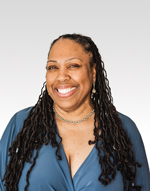
Afrika Afeni Mills
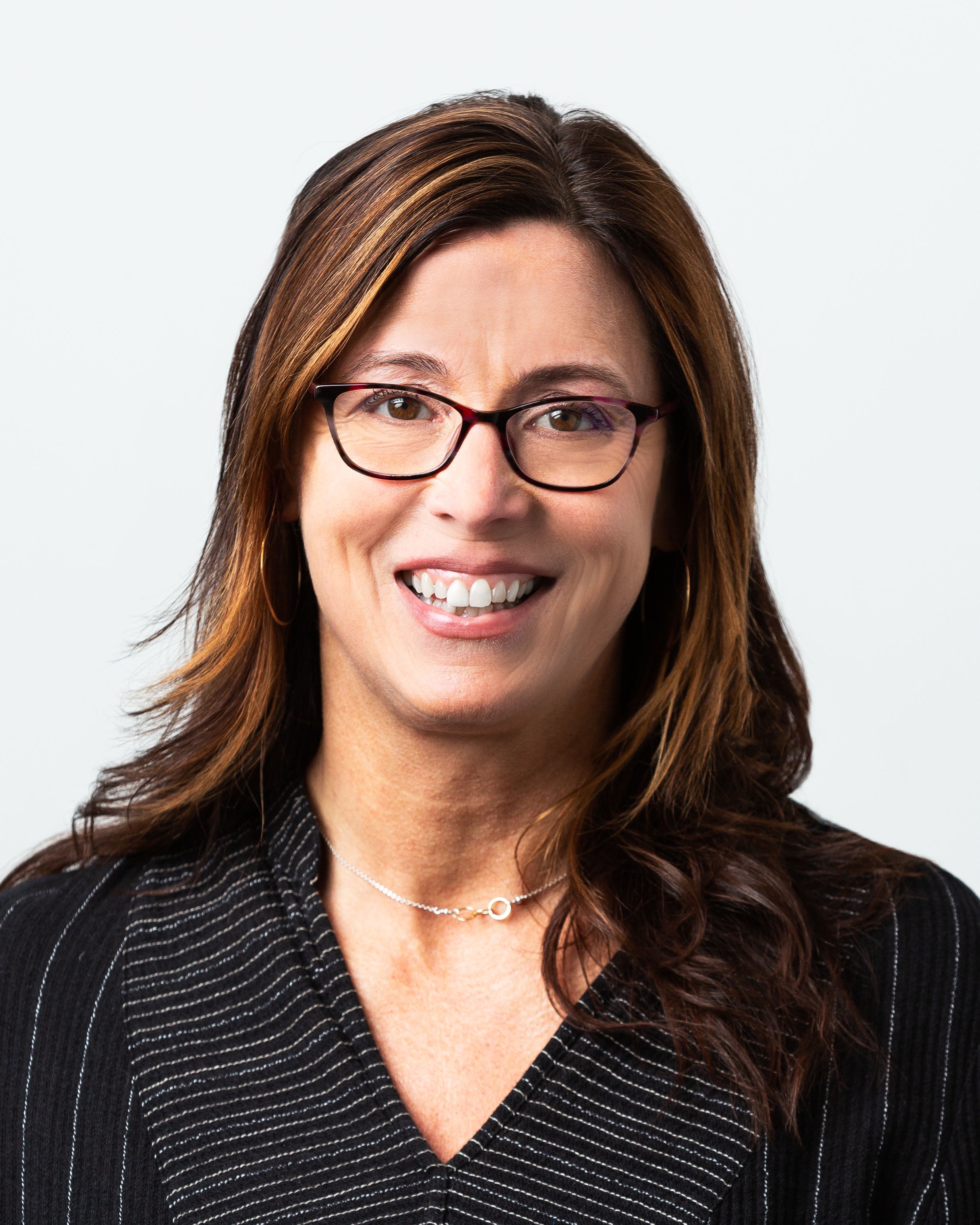
Jenna Chandler-Ward
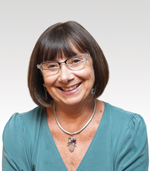
Carol Pelletier Radford
Carol received her Education Doctorate from the Harvard University Graduate School of Education, where she focused her studies on mentoring and teacher leadership. She is also a certified yoga teacher who practices meditation and shares mindfulness strategies with educators through her online courses and website. Her podcast Teaching With Light features the stories of teachers and inspirational leaders. Her next passion project is the creation of a Teacher Legacy Network, where retired teachers can share their wisdom with the next generation of teachers.
You can learn more about Carol, find free resources, videos, meditations, courses, and all of her books at mentoringinaction.com/.
Twitter: @MentorinAction
Facebook: @MentoringinAction4Teachers
Instagram: @cpradford
Related Titles
This is a carousel with related book cards. Use the previous and next buttons to navigate.
